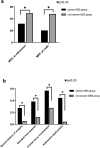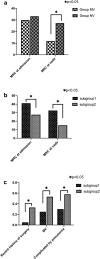Risk factors for the severity of Guillain-Barré syndrome and predictors of short-term prognosis of severe Guillain-Barré syndrome
- PMID: 34079013
- PMCID: PMC8172857
- DOI: 10.1038/s41598-021-91132-3
Risk factors for the severity of Guillain-Barré syndrome and predictors of short-term prognosis of severe Guillain-Barré syndrome
Abstract
Guillain-Barré syndrome (GBS) is a neurological disorder characterized by paralysis. Identifying the severity, appropriate therapeutic method, and prognosis of GBS at an early stage is highly important. This study aimed to investigate the modifiable risk factors for the severity of GBS and consequent need for mechanical ventilation (MV) and to identify clinical predictive factors for poor short-term outcomes of severe GBS. 155 GBS patients who were admitted to the Affiliated Yantai Yuhuangding Hospital of Qingdao University during 2014-2020 were enrolled. Demographic, clinical, therapeutic and evolutionary data were collected and were then analyzed using univariate and multivariate regression analyses. Our analytic data demonstrated that the significant clinical predictors of severe GBS were recent history of surgery, older age, cranial nerve impairment, and elevated levels of liver enzymes (p < 0.05). Furthermore, autonomic dysfunction, lower Medical Research Council (MRC) score at nadir, and elevated levels of liver enzymes were significantly associated with MV for severe GBS (p < 0.05), and lower MRC score at nadir and autonomic dysfunction remained significant predictors of MV in severe GBS (p < 0.05). Lastly, recent history of surgery, lower MRC score at admission and at nadir, requirement for MV, and pneumonia during hospitalization were significantly associated with the short-term outcome of severe GBS and that lower MRC score at admission and need for MV were confirmed to be predictors of poor short-term prognosis (p < 0.05). Of note, this study suggested that recent history of surgery is a predictor of severity in GBS patients and is associated with the poor short-term prognosis of severe GBS.
Conflict of interest statement
The authors declare no competing interests.
Figures


References
MeSH terms
LinkOut - more resources
Full Text Sources
Medical

